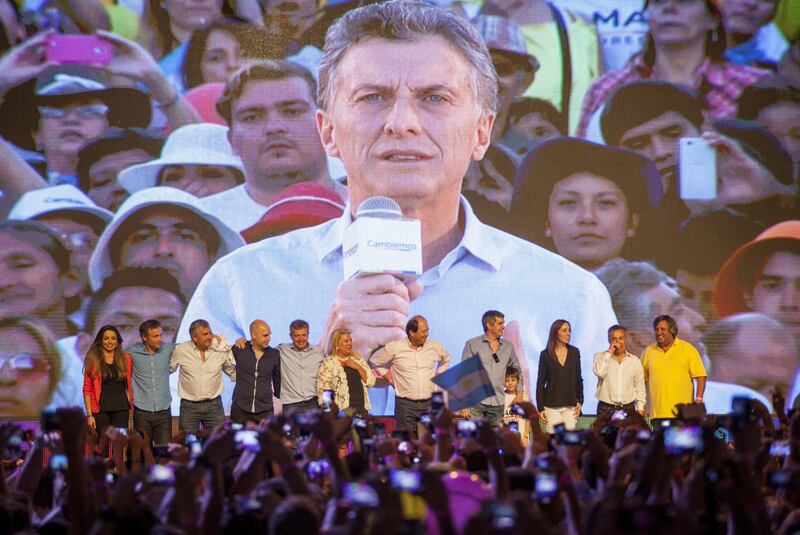The International Monetary Fund will convene on Tuesday to draft a revised economic plan for Argentina, as the country struggles to halt a dramatic fall in its currency that threatens the collapse of Latin America’s second-largest economy.
The peso has lost more than 50 per cent of its value against the US dollar since the beginning of the year. It is the worst performing currency against the US dollar this year among its emerging market peers, and is set for its biggest monthly decline since January 2002, according to Bloomberg data.
“IMF staff and the Argentine authorities have been working closely to strengthen the Fund-supported arrangement in light of recent market developments,” said Gerry Rice, chief IMF spokesperson and director of communication at the Washington-based lender, in a statement on Friday.
IMF managing director Christine Lagarde, other IMF staff, Argentinian finance minister Nicolas Dujovne and his team are scheduled to meet on Tuesday this week to advance the dialogue, Mr Rice added.
“Our goal is to rapidly conclude these talks and submit the revised economic plan to the Executive Board," he said. “As the managing director stressed, Argentina has the full support of the Fund and we are confident that the strong commitment and determination of the Argentine authorities will help the country overcome the current difficulties.”
The IMF on Wednesday agreed to revise the terms of its $50 billion Argentina bailout package after the peso plunged to a record low against the dollar and Argentinian president Mauricio Macri made a public plea for the lender to speed up distribution of the bailout money. The IMF distributed the first tranche of the 2019 financing programme, of $15bn, in June.
The peso has weakened by about 24 per cent against the dollar since the start of the month and about 53 per cent of its value since the beginning of the year to trade at 39.87 to the dollar. It was worth around 18 to the dollar at the start of the year.
In a dramatic effort to stem the decline, Argentina’s Central Bank on Thursday hiked its benchmark interest rate to 60 per cent from 45 – one of the world’s highest – but the measure proved fruitless as the peso shed a further 13.5 per cent by the end of the day.
The currency stabilised slightly by Friday but remains vulnerable, with high inflation and the prospect of recession in the country prompting questions as to whether Argentina can meet its funding needs estimated at $77bn for 2018 and 2019, according to Oxford Economics.
_______________
Read more:
[ Argentina hikes interest rate to one of the world's highest amid falling peso ]
[ Argentina and IMF agree accelerated loan pay-out ]
[ Risk of escalating emerging market pressure looms ]
_______________
With a presidential election scheduled in 2019, Marcos Pena, President Macri’s cabinet chief, was forced to deny last week that his three-year reformist government is facing an economic disaster. “This is a transformation, not failure. In that transformation there are difficult moments,” he told the opening of the Council of the Americas business chamber in Buenos Aires on Thursday, according to media reports.
He attributed the peso’s present volatility to “structural vulnerabilities” following a drought in Argentina that affected agricultural production, and a “change in the financial and commercial context in the world, notably due to tensions between the US and China.”
On Wednesday IMF managing director Ms Lagarde said: “In consideration of the more adverse international market conditions, which had not been fully anticipated in the original programme with Argentina, the authorities will be working to revise the government’s economic plan with a focus on better insulating Argentina from the recent shifts in global financial markets, including through stronger monetary and fiscal policies and a deepening of efforts to support the most vulnerable in society.”






